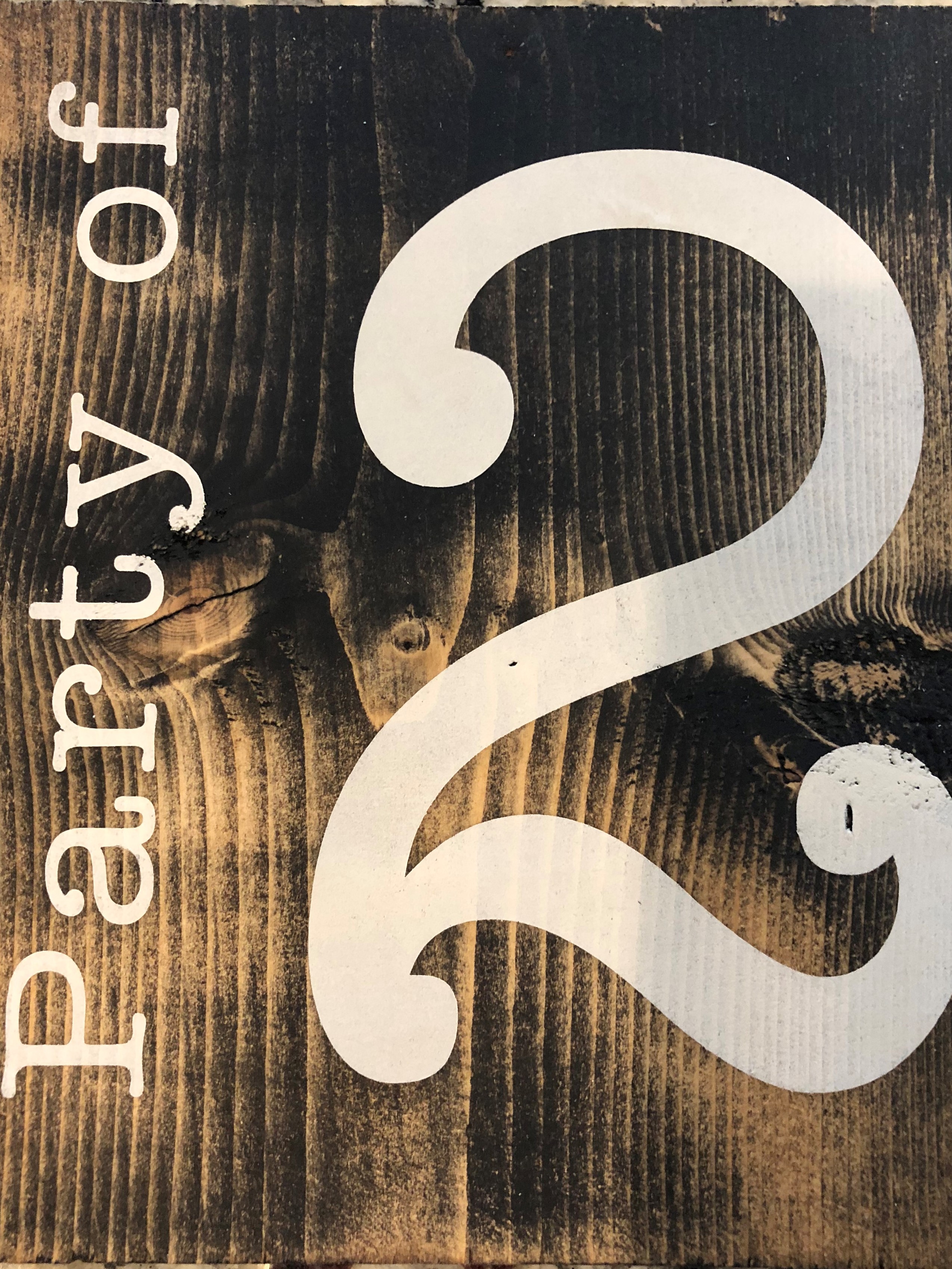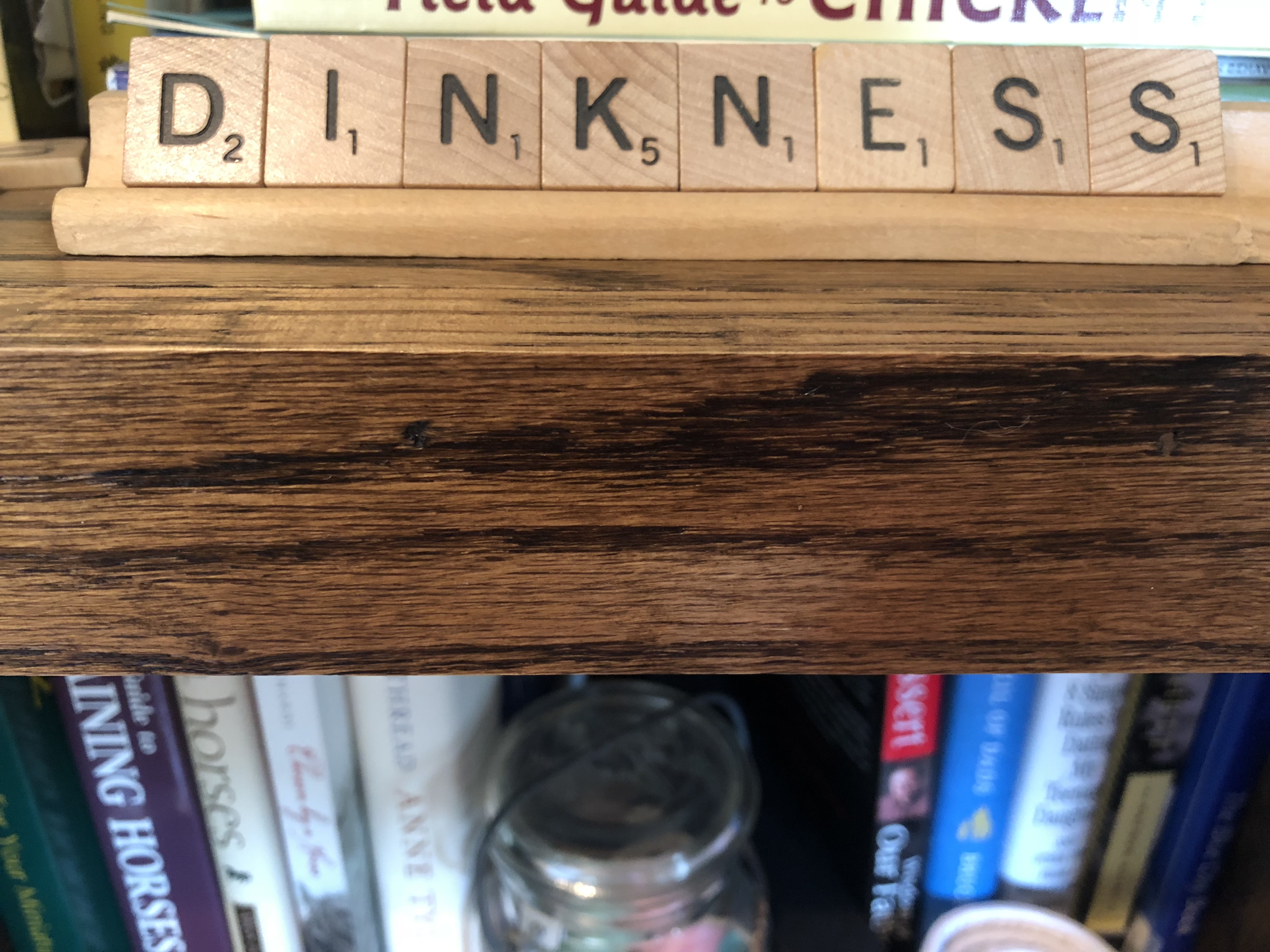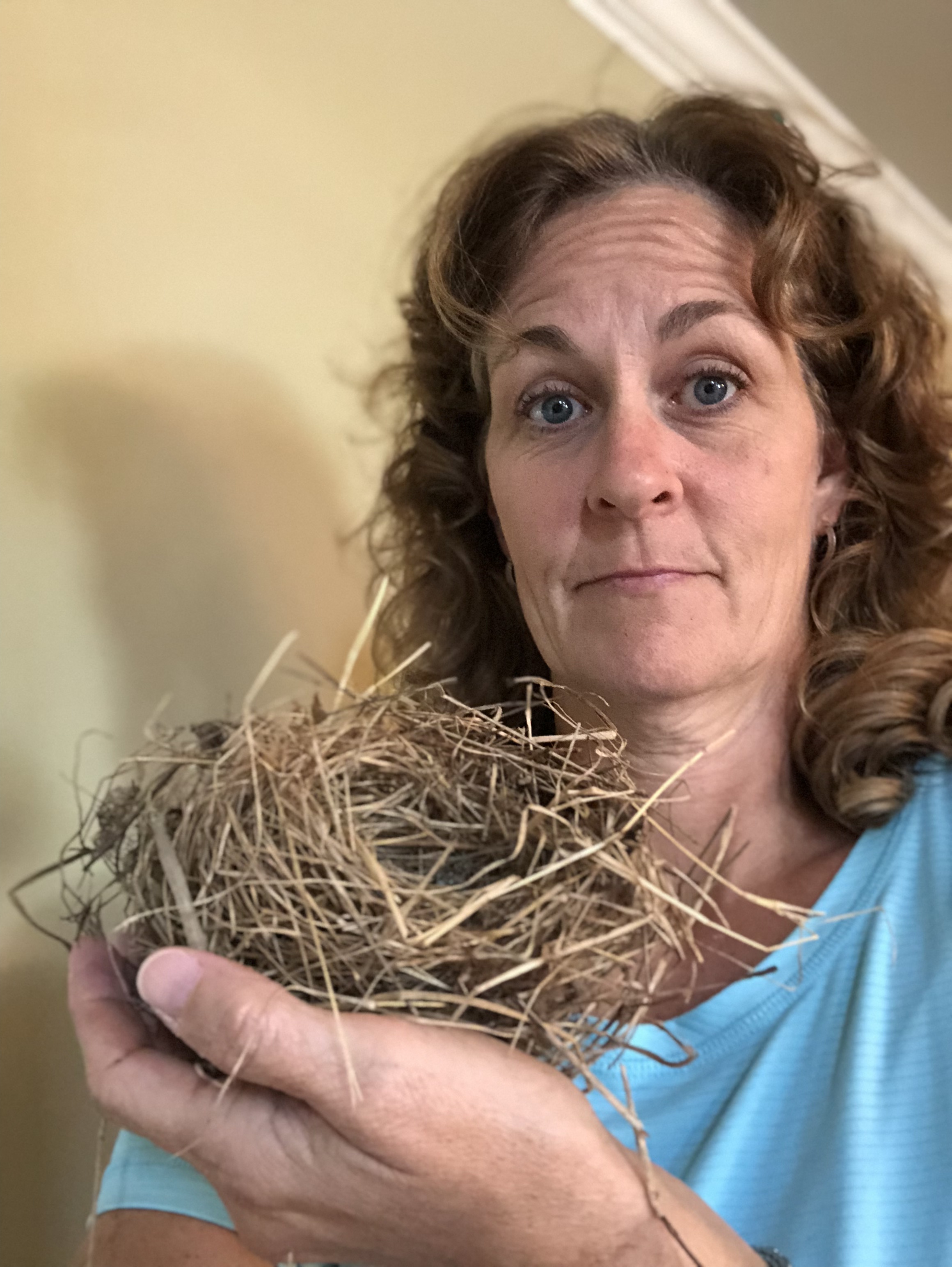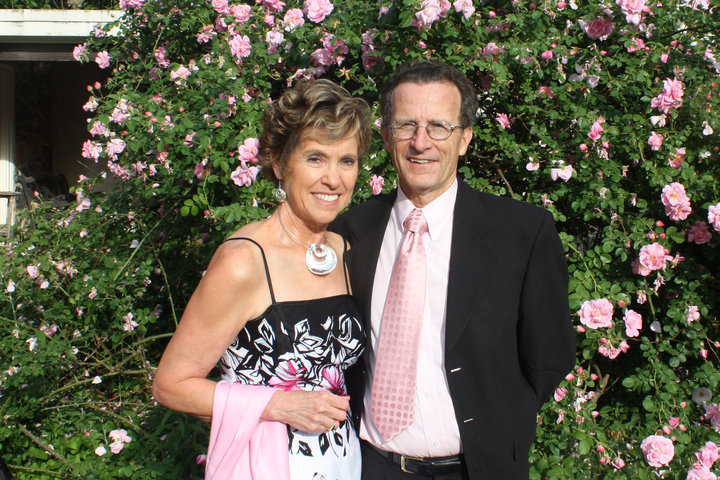
by bsquared5@aol.com | Dec 12, 2019 | Thoughts
Families tend to be littered with characters, most of them ordinary–playing their vital roles and fulfilling their duties in matter-of-fact ways–and a few exceptional, the sprinkles on what might otherwise be a rather vanilla family cupcake. My mother’s younger sister was the sprinkle.
I knew nothing of their childhood until I’d grown well past my own. My mother’s sister was the only one who ever called her Ethel, her given name, instead of Sally. Even as a kid, this drew me to my aunt as a holder of mysteries, a figure able to conjure things about my mother no one else could. But I admired a host of things about my aunt. For one, she had one of those quintessential double Southern names that you pronounced all of a piece–Bar-bran. Barbara Ann. She used it as it pleased her, going as Barb or Barbara professionally and slipping casually into the double moniker when she visited family. I imagine she got a lot of mileage in her mid-twenties out of the Beach Boys’ smash hit. I know every time it crossed my radio’s air waves–Ba Ba Ba Ba BarbaraAnn–there was only one face I pictured.
In contrast to my rather gallumphing, tomboyish tumble of a family, Barbara Ann was a movie star. She might have seemed more at home posing with Princess Margaret or Jackie O than hobnobbing with our lot. On a visit to our grandparents’ home, we’d pile out of the family station wagon, rumpled and cranky like a pack of stray dogs, and she’d breeze in later, headlights sweeping across the front window, usually having driven straight from work with her single son in tow. She’d climb out of her sedan with hardly a wrinkle in her pressed pant suit, smelling of perfume and cigarettes. We were solid suburbanites; she’d lived in the big sprawling city of Atlanta ever since she’d left the sleepy fishing town of Panama City to forge her path. She casually drove its spaghetti highways and thought nothing of commuting downtown in the city my father never drove through without white knuckles and cursing.
In the mornings at my grandparents’, where there was only one small bathroom, she’d rise early with a cup of coffee and settle in at the dining room table. Here, I’d watch, fascinated, as she set up a lighted, magnified mirror and pulled out a tackle box full of creams, paints, colors, and brushes. Under her expert hand (where had she learned this wizardry?), she’d transform her angled pixie face like a canvas until she looked like a magazine model. No one in my family did this. My mother’s beauty regimen consisted of baby oil and lipstick. Barbara Ann had nowhere to be and no one special to see, Lord knows not on the docks by the bay, but it made her feel good to look good, she said. And she did. Her trim, petite frame was always draped with artful size two clothes and her dark, curled locks always tidy. She’s the reason I don’t leave the driveway without at least a cursory attempt at being presentable.
She lived on a sloping, wooded lot with a creek in a two-story house which she filled with a mix of Art Deco furniture and glassware she’d scoured from antique shops. The woman could shop. She knew just where to go to get a bargain, and her closet was a treasure trove of colors and style. On one visit back in the early 80’s, she sat my mother and me down on her silk-covered bedspread and instructed us on the finer points of the Color Me Beautiful philosophy, trying different scarves and draping us with colors to demonstrate her point. “See?” she rested her case. “You’re winters,” she told us. “Neither one of you was ever meant to wear mustard yellow,” something I wish someone had told me before my 7th grade school pictures.
She managed to make it look easy: living as a single mother in that big house, taking care of everything. She had the tenacity of a hungry badger, going after what she wanted and standing up for herself. Facing some rough seas, she did battle against those she saw as takers, refusing to let injustice have its way. Some of this she learned from her father, a salty burl of a man who had his own way of doing things. She once helped him pilot his fishing boat down the Gulf coast from Mobile, Alabama to Panama City–in a full-out hurricane because it seemed a good a time as any and a little wind never hurt anybody. And some of her spunk and perseverance she got from her mother, who single-handedly cared for Barbara Ann’s disabled brother for decades. Perhaps this is what enabled her to remain a die-hard Braves fan for so long, despite–well, everything.
While Barbara was certainly beautiful and carried herself with poise, she could hoe a row of okra, kill a snake in the creek, and knew how to catch a fish that weighed twice what she did. She knew how to laugh and loved to dance. She had vices: she could hold a grudge with both hands and never let go; she couldn’t give up cigarettes. If you crossed her, she might jerk a knot in your tail, but she was a softie inside, taking in ugly stray cats and watching the birds from her window. After my mother passed away, I know Barbara keenly felt the sting of that sister-loss. We should have spoken more, should have visited more often, but hearing my mother’s voice come out of her mouth–that familiar cadence and the way she rounded out her O’s with the trace of an accent–would completely unravel me every time we spoke. The ghostly echo was uncanny.
A woman named Jenny Joseph wrote a poem in the early 60’s that became the mantra for aging gracefully. The first bit goes like this:
When I am an old woman I shall wear purple
With a red hat which doesn’t go, and doesn’t suit me.
And I shall spend my pension on brandy and summer gloves
And satin sandals, and say we’ve no money for butter.
I shall sit down on the pavement when I’m tired
And gobble up samples in shops and press alarm bells
And run my stick along the public railings
And make up for the sobriety of my youth.
I shall go out in my slippers in the rain
And pick the flowers in other people’s gardens
And learn to spit.
This, fittingly, reminds me so much of Aunt Barbara. She and her Red Hat Ladies spent some fine times in their slippers learning how to spit. I’m sure she was right at the helm of that particular ship, sailing into the hurricane with her face to the wind, determined to hit the shore of 80. Happy birthday, Barbara Ann. Have a cupcake wherever you are. And make sure it’s got plenty of purple sprinkles.

by bsquared5@aol.com | Oct 4, 2018 | Thoughts
In the primitive playgrounds of my childhood, my father pushed the hot metal merry-go-round at breakneck speeds, my brother and I shrieking and holding on for dear life. We learned to hold tight to the nearest pole, arms and legs wrapped like baby monkeys around our feeble anchor. Had we let go, we would’ve been flung into the whirling scenery, small human projectiles. When the spinning stopped, the background kept going, and we staggered like diminutive drunks, our arms akimbo attempting to balance.
That’s the best feeling I can conjure for what it’s been like for the past few months. In the space of one summer, we had two graduations (one from college, one from high school), a wedding, an out-of-state move, and finally, packed our last fledgling off to college. When that merry-go-round stopped spinning and the busyness subsided, we blinked at each other in the quiet, clutching hands for stability. Our nest of four had suddenly become a party of two.
 The old spots I used to rely on to prevent dizziness in the spin of parenthood were missing, and for several weeks a sense of disorientation and unease was unshakable. We knew the house would be quieter, but we didn’t anticipate the other changes that made us feel shifty and uncomfortable, like wearing a sweater a few sizes too big.
The old spots I used to rely on to prevent dizziness in the spin of parenthood were missing, and for several weeks a sense of disorientation and unease was unshakable. We knew the house would be quieter, but we didn’t anticipate the other changes that made us feel shifty and uncomfortable, like wearing a sweater a few sizes too big.
The contents of the pantry and fridge changed. No one drank the milk each morning (or early afternoon) with cereal, so we no longer keep the familiar half-gallon on hand. In fact, entire aisles at the grocery store are now obsolete. Obviously the diapers and baby products were abandoned long ago, but off the list went the requisite teenage boy snacks. We notched up the a/c upstairs, the bedrooms uninhabited. We only need to climb the steps when we need a suitcase from the bonus closet, so might as well save on the electric bill. It takes longer to amass a full load of laundry, and the dog needs extra walks because the boy who could always be counted on to play tug-of-war or chase isn’t blowing off steam in the afternoons after school.
We still liked each other, the spouse and I. We had to say that out loud every now and then as we renegotiated and adjusted our routines and rhythms. Our dance steps were a little off–we stepped on each other’s toes as our expectations of ourselves and each other shifted. Our conga line had become a tango, and the tempo had changed. Admittedly, there was a bit of tip-toeing around, eyeing each other sideways and trying to gauge moods and emotional availability. This is the same thing that happened when they were newborns. Children up-end your life both coming and going, it seems.
After twenty plus years of mentally juggling four lives, my attention was my own once more, and it was strangely unsettling. “Give me a week,” I announced. “Of sitting in this before you need me for anything.” I wanted to feel the house’s stillness, mull things over in my mind about our next chapter, and yes, be sad over losing the way things had been for so long. So I did, and I was. But my curiosity about what lay around the corner and my pride and excitement for the paths our kids were on burned away the fog of melancholy soon enough. They’d launched, and the two of us back at headquarters were still full of pluck and vinegar.

A Scrabble tile rack with a handful of letters sits on our bookshelf. I use it to spell out one-word attitude reminders like “joy,” “kindness,” and “love.” For the longest time, I’d place a word for the week and come back to find it had been rearranged into some garbled nonsense or, more often, an “alternate” word choice. Kindness became “dinkness,” for example. This, of course, was my son’s doing: his idea of subversive hilarity. What even IS that? I’d cry in mock outrage. We’d go back and forth at it, each of us changing the word and seeing how long it would take for the other to discover the sabotage.
When we moved this eager sapling boy into his dorm earlier this year, he got the last word. I was too busy checking off lists as we packed to notice the Scrabble defacement. It was days later, when my eyes wandered to the shelf as I waited for my coffee to brew, that I had to laugh. He came home briefly the other day and I caught him smirking in the kitchen.
“What?”
“You’re not very observant, mom.” He glanced at the shelf. I smiled up into his triumphant blue eyes.
“Oh, I noticed it. I just thought I should leave it there.” I got a rare hug. Perhaps he felt, too, how the familiar house had changed in his absence, how the buzz of activity had lulled to a low hum.
In the days to come, as we enjoy our new routine and menus and discover this new rhythm in our roomier nest, that tile rack will remain unchanged. It’s a good reminder to us to keep laughing, even when it stings a little, and to treat one another gently. No matter how strong we are, there are times when we can all use a little human dinkness.


by bsquared5@aol.com | Aug 29, 2014 | Thoughts
My best friend’s parents will have been married for 50 years this month. Fifty years. Living side by side while they jockeyed through careers, children, parents, finances. Fifty years of tolerating, compromising, communicating, sighing, partnering, and in their case, laughing. “Aren’t they lucky?” you might think, but luck has nothing to do with it.
I first met them when they were about 20 years into their journey, having moved from Ohio to Tennessee. By that time, they already had three girls and a boy, ranging from high school to kindergarten. Their home was full of noise, laundry, chore divisions, and chaos. I loved it.
I’m from a big family too—I’m the fourth of five—but by the time I met the Bettler’s, my older siblings had already left home and we were down to just my younger brother and me. Our house by comparison was very, very quiet. We had easy dinners for four each evening after school, while they had Kitchen Productions—each family member playing a role in the cast of some hilarious unscripted play that unfolded nightly, with multiple “exit stage lefts” as one left to go to some sports practice, another had to finish an assignment, and the others argued over who was supposed to cook the side dish and who was supposed to load the dishwasher. Glorious.
He was a chemist and she was going back to teaching now that her nestlings were all school aged. The way they complemented each other was obvious. She organized. He guided and coached. She planned and nurtured. He listened and offered comic relief. A well-oiled machine. I thought of them as my second parents since their oldest daughter and I were best friends, and we were at their house so often that I’m surprised I didn’t find my name on the duty roster.
After I left for college and they moved up north, I didn’t see much of the Bettler’s anymore, but they were always in the back of my mind as I kept up through my best friend. I got the annual informative Christmas card like everyone else, followed the multiple marathons that Bud ran—still runs!—and always looked forward to seeing pictures of him in whatever goofy hat he decided to don for the latest race. Barb was proud of her students and the Odyssey of the Mind competitions she headed on their behalf. And the grandchildren! They multiplied quickly over the years and were scattered all over the place, necessitating frequent trips to spoil them all just right.
When I lost my own mother too early—she was 55 and my parents had been married 33 years—I immediately thought of Barb as “mom.” Whether she knew it or not, when I had my own children and started juggling life, I often thought of her and her family and asked myself what Barb would do in a given situation. I was at the end of my rope at one point, wrestling with worry over my teenaged daughter, and I wrote asking her advice. She didn’t get ruffled or act appalled at the ruin I’d apparently made of my child. In her calm, sweet way she made me feel like I was “doing ok” and that it would all work out, which it did. When I found her note in the mailbox that day, I cried all the way through it, feeling as though my own mom had been able to give me a reassuring hug and listening ear.
A few years back, our family was on a quest of visiting all 50 of the United States. We were able to stop in at their house in Delaware and spend a warm, hospitable evening as we checked off another state. Being the Steve Martin of Granddad’s, Bud knew just what to do to engage my son, Ben. He treated my children like interesting, intelligent people in their own right, and Ben, now almost 15, still refers to that visit and the cool joke book that Mr. Bettler gave him.
Only 5% of couples make it to their 50th anniversary. For some, like my parents, the C-word dashes their chances. For others, they get married at a later age and time just doesn’t allow them to make it that long. But in the majority of cases, most people just give up. They let the tedium of everyday life and the stress of children, money, jobs, and car trouble make them forget that once upon a time they actually liked each other.
What’s so readily apparent when you meet the Bettler’s, whether today or over 30 years ago, is that they actually DO like each other. They always took time to work on their marriage in spite of life’s busyness, treating their union like one of their children, needing to be fed, cared for, and nurtured. They are true spiritual partners, helping each other grow to be better, serving together in their church and community with the Stephen Ministry and other avenues. Mentally, they are equal and active, always learning new skills or developing new talents like photography. They share books. Physically, they stay active together, running or ball room dancing or traveling. Emotionally, they support one another, whether through retirement, the death of a parent or the birth of a grandchild. They’re social butterflies, meeting new people and finding other people interesting. It’s no wonder that they have been able to reach the fifty-year mark, really. They have been the perfect fit for each other in every area that matters. Because they’ve been solid, they’ve been able to raise four successful, independent, thoughtful children who are decent and good.
My husband and I are not quite to the quarter-century point in our marriage. We often look to the Bettler’s as an example of where we’d love to be in another 25+ years—still enjoying each other, still active and happy, and still working on tolerating, communicating, and appreciating each other, able to laugh often, especially at ourselves. We have a sign above our bed that bears a line by Robert Browning: “Grow old along with me, the best is yet to be.” Bud and Barb have lived that out in their life together, and it’s been beautiful to watch. I look forward to the Christmas cards and their tales of family and joy for many more years!
Happy Anniversary!






